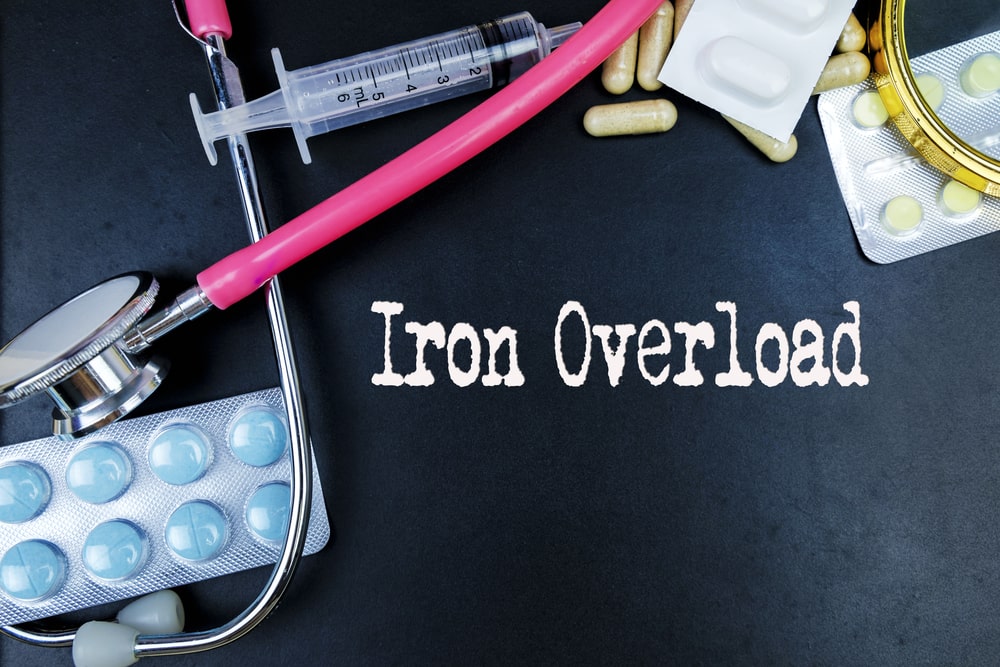
Iron is an essential and a mineral that helps in the movement of oxygen in your blood. Nevertheless, it does not mean that too much iron in your body is good. It is what is known as iron overload and it may include a variety of organs including your digestive system.
We proceed in this article and provide an explanation as to how iron overload may develop, the impact of iron overload on your gut and liver, signs to watch out and the measures to take to protect your digestive health.
Iron overload is a condition that is caused by the body accumulating more iron than the need. The extra iron is stored within your organs especially, your liver, pancreas, heart, and gut. This can end up being harmful in the long run.
The most common one is the hereditary hemochromatosis that is a genetic disorder. Patients of this disorder attenuate the excess iron in their diets despite non-utilization of supplements.
Because of the importance of iron absorption, the digestive system functions with it. Most of the iron that is absorbed in the small intestine is incorporated in food. When there's too much iron:
All this may result in the issue of the symptoms that may affect your everyday life.
The liver helps in the digestion of the nutrients and purifying the unhealthy materials. It also stores extra iron. But too much iron can lead to:
This can also have an impact on your gut microbiome - the bacteria on your skin in your digestive system.
Diseases caused by excess of iron:
Many of the symptoms of iron overload have an impact on the digestive system. These include:
These symptoms may either be present or absent and increase with time. They tend to be confused with other conditions and that is why iron test is important.
Even in non hemochromatotic individuals, iron supplements can cause digestive issues.
If you take iron and feeling uncomfortable, consult your doctor. You have not a certain number you want, or you are making more gains than you are aware of.
Physicians just apply basic blood tests to eliminate iron levels.
Diagnosis should be done at an early age. Once caused it is hard to be undone.
This is the commonest type of treatment. Your doctor regularly removes blood in order to decrease the quantity of iron.
This is a medication that releases excessive amount of iron in urine or feces. It is dropped in case you are unable to undergo phlebotomy.
Certain foods can also aid in the growth of iron overload. Others help protect your gut.
A simple blood test can help people to check the level of iron in their blood and prevent the development of additional complications.
Balance is the most important yet the other is iron. Over absorption by the body can lead to liver, gut and health related complications.
The good news? By means of early diagnosis and quality treatment, you will be able to contain the iron overload and save your gastrointestinal system.
Your doctor should be asked in case you do not know whether your symptoms are related to iron. The outcome of a simple test can be the permanent happiness and health improvement.
Unnecessary iron can be accumulated in the digestive organs and cause inflammation and dysfunctions in them.
Yes, too much intake of iron is also detrimental to the liver that ultimately leads to cirrhosis or liver damage.
The iron in the pancreas could disrupt the synthesis of insulin and leave one at the risk of developing diabetes.
Yes, such symptoms as abdominal pain, nausea, diarrhea or constipation may occur.
It can ruin the lining of the intestines and reduce the absorption ability of the body.
Excess iron can be pro-oxidant and trigger chronic intestinal inflammation.
The build-up of iron and inflammation in the long-run may put one at risk of certain digestive system cancers.
The evaluation of the iron levels and damage to the organs are done through liver tests, liver imaging and biopsies.
The iron concentration and loads on organs can be reduced through phlebotomy, iron chelation therapy and dietary manipulations to reduce iron levels.
You should seek medical attention when you have symptoms of digestion and when your iron level is multiple or when someone in your family has the history of iron overload.